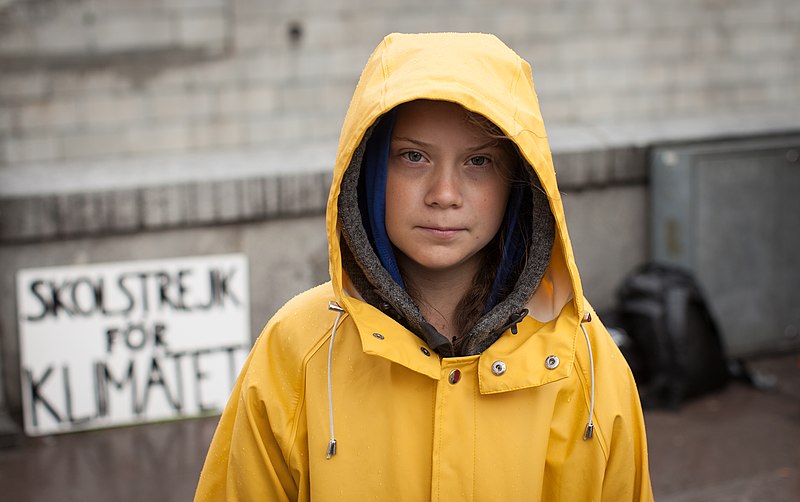I started following Greta Thunberg's activities a year ago after her first strike in Stockholm in front of the Swedish Parliament building.
I was impressed by her courage, daring attitude and determination to push the climate issue to the top of the political agenda. At the time, she only had a few hundreds of followers on Twitter.
Like me, many professionals have studied environmental science; led projects aiming at improving energy efficiency, reducing carbon emissions and promote clean technologies. Most of us are convinced of the need and urgency to act.
We wrote it in reports, emphasised it in speeches, mentioned it in articles and highlighted it in interviews…but those millions of experts, scientists and professionals all over the world have had less impact than Greta Thunberg alone.
The movement she created and the mobilisation that followed her call are unprecedented. She is the voice that scientists didn't succeed to muster up - and the leader whom young (and younger still) people were desperately missing.
We admire Greta Thunberg not just for the courage and determination she is displaying at her young age, but also because she is innocent and disinterested in any industrial or financial interests. She pursues a conviction based on scientific facts that nobody can dispute.
Then why has no one before her succeeded to give the climate issue the dimension she has now? Why, though the scientific facts have been known for years, have none of the scientists been heard the way she has? Why, all of the environment experts and professionals didn't have with their studies, articles or interviews the impact she is having with her tweets?
Short-sightedness
There is a simple answer to that: those supposed to take ownership of the arguments prepared by the scientists have been too much focusing on their narrow and personal political agenda, rather than thinking about the collective interest.
For most politicians, their most pressing concern is to achieve something visible during their electoral mandate, more than taking decisions that could have a tangible impact in 20, 30 or 50 years.
In addition, they are too often motivated by the next electoral campaign and maybe not courageous enough to risk losing political support (in particular from industrial groups), as advocating for sustainability implies bold and sometimes unpopular actions that only brave politicians could decide to implement.
Some people reproach Greta Thunberg her catastrophism and confrontational approach against “adults”. Actually, she is asking them to face their responsibilities and the consequences of their inaction.
Usually, decision-makers consider the youth in relation to the future, but the Climate Strike is forcing them to consider them in the present and to act now. Youth are actually forcing adults to leave their comfort zone of making empty promises and to begin taking risks and action.
Policymakers are not the only ones to blame, their consultants and advisers also have to take their responsibilities. They prefer to express in their reports what their clients or employers want to read rather than taking the risk to be provocative and bring positive change.
This is not what politics should be about. It shouldn’t be about making compromises that make politicians, advisors, industrial groups and lobbies serve each other rather than serve the public interest. Politics should be about making decisions for the greater good.
But luckily this is changing.
The Climate Strike movement is questioning the status quo. It is forcing political leaders and influencers to position themselves in this debate. It is forcing some masks to fall, revealing the real face of certain politicians, opinion leaders or editorialists.
It disrupts some industries like the oil sector with the OPEC recognising Greta Thunberg and the movement she created as a threat to their business.
It makes scientists more visible and more heard as they defend the result of their studies. It is strengthening the influence of associations and the civil society organisations as they urge for climate emergency and call upon policymakers to once and for all take bold decisions.
It is giving us, professionals and experts, more courage and daring to stand for our position, to express our convictions, to refuse any arrangement with those having interest in the status quo. We are gaining confidence.
We feel motivated and proud to fight for our convictions. We feel that we are on the right side of history.
Thank you, Greta.
Mohamed Mezghani


